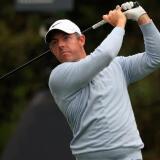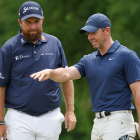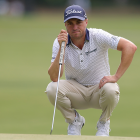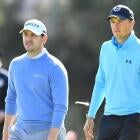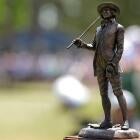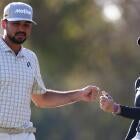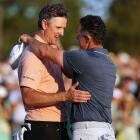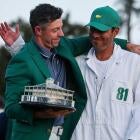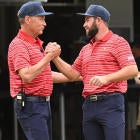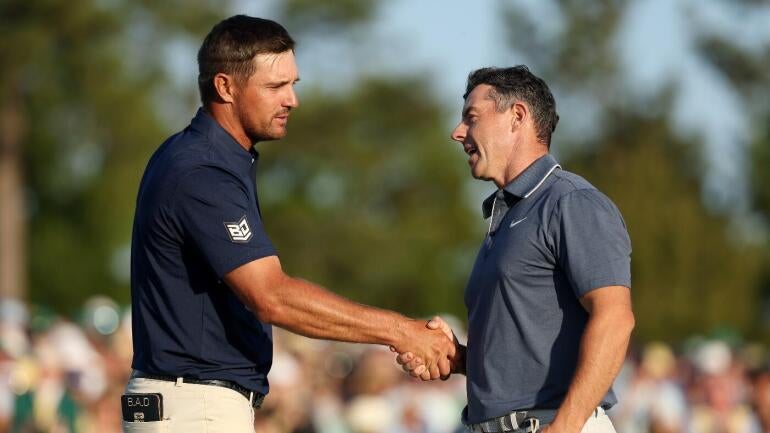
Saturday night and Sunday morning were filled with anticipation and angst at the 2025 Masters. The buzz around Augusta National and on couches nationwide was palpable as everyone waited patiently for 2:30 p.m. ET when Rory McIlroy and Bryson DeChambeau stepped on the first tee to begin the main event.
Saturday's third round had seen McIlroy surge into the lead with DeChambeau hot on his tail just two shots back after three birdies in his final five holes. That late push put Bryson two in front of Corey Conners and four in front of the rest of the field, a gap that figured to be wide enough to give us a two-man duel for the green jacket.
It would be a rematch of their thrilling U.S. Open battle at Pinehurst No. 2 just 10 months prior where DeChambeau stumbled early in the final group and McIlroy took the lead in the group ahead midway through the back nine. At that point, all hell broke loose with a pair of short misses by Rory and Bryson authoring the shot of his career — a 60-yard bunker shot that nestled just a few feet from the hole to give him a win and rip McIlroy's heart out one more time.
This year, they were set to do battle head-to-head, able to look each other in the eyes as they threw haymakers in pursuit of the prize each covets most in golf. The tension in the final pairing wasn't just about their history with each other, but it was also about their past failures at this particular place creating an additional layer of nervous energy.
McIlroy's shortcomings at Augusta National have been well-documented. His final-round 80 in 2011 put him alongside Greg Norman for the biggest Sunday collapses in Masters history. Since then, he had never so much as grabbed a share of the weekend lead at the Masters until he found himself back on top Saturday.
DeChambeau's struggles at the Masters haven't been quite as discussed. The 2016 low amateur once proclaimed Augusta National a "par 67" and has spent every moment since being humbled and trying to repent for his disrespect to the challenge of the course. His T6 in 2024 was a breakthrough to his best finish in eight starts but still saw him fade off the pace of Scottie Scheffler on the weekend after taking the 18-hole lead.
The final pairing was billed as a heavyweight fight between two of golf's biggest stars, but the most important battles would be waged internally. The first four holes gave us the final pairing drama for which we had hoped, the nerves of the moment on full display for both.
DeChambeau walked off the first green tied with McIlroy for the lead after a dreadful double bogey from the 54-hole leader. After a birdie on No. 2, he was in the lead alone with McIlroy teetering on the edge of another Masters meltdown. Then, just as quickly, everything flipped. McIlroy birdied Nos. 3 and 4 while DeChambeau began to unravel with a pair of bogeys, handing Rory not just the lead back but extending his advantage to three.
After trading pars on the next four holes (with McIlroy authoring some outrageous escapes from the trees), the ninth hole served as the pivot point for the round. Both players bombed drives to leave 100 yards or less into the green. Both stuck wedges to within 10 feet. But it was McIlroy who got to putt first, pouring in a birdie that DeChambeau couldn't answer to take a four-shot lead to the second nine.
At that point it was clearly Bryson, not Rory, crumbling under the weight of the moment. His distance control and accuracy with his irons continued to be a problem as he battled with his ball-striking all tournament, but the short game and putting that had covered for loose approach shots couldn't stand up to the pressure of the final pairing with the green jacket in sight.
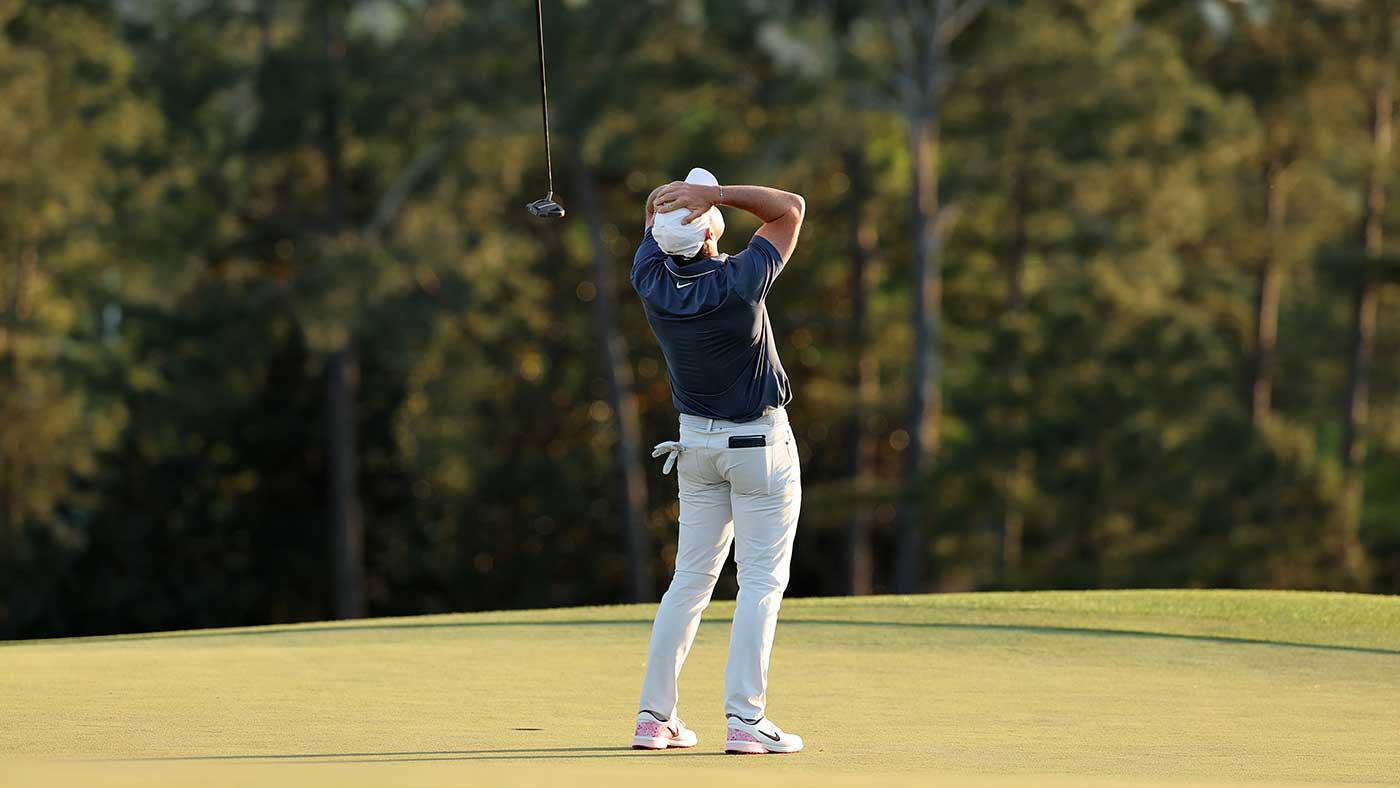
Another wayward iron found the water on No. 11, resulting in a double bogey that effectively ended his chance at contention — even with McIlroy's own meltdown on the way. DeChambeau would attempt to rally but found the water again on No. 15 with an iron that came up 20 yards short of its intended target.
With DeChambeau bowing out and his closest competitor on the leaderboard three holes in front, McIlroy found himself in the place he never wanted to be — battling with himself. A final pairing duel might have helped focus Rory's energy on someone else, but with DeChambeau suddenly seven shots off his lead as the exited the 12th green, he had to turn inward — the scariest place he can go at the Masters.
As a result, McIlroy dropped three shots in his next two holes, relinquishing the lead alone and bringing Justin Rose (and, briefly, Ludvig Åberg) back into the picture. DeChambeau was not part of that conversation at the end, and his final-round 75 will sting for some time, particularly knowing that all he needed to do was play solidly enough to pounce on the McIlroy collapse.
Rory, for his part, would rebound admirably and finally secure his green jacket. It required more drama than it needed, but he was able deliver one final iconic shot on No. 18 in the playoff against Rose to set up the kick-in birdie that completed his career grand slam.
All eyes on Bryson at future Masters
While there was some disappointment that we didn't get the duel we expected out of the final pairing, it did serve as a passing of the torch for Masters misery.
"I wonder what we're all going to talk about going into next year's Masters."
That was McIlroy's joke to open his champion's press conference, noting that he's fielded the same questions about not winning the Masters for 14 years, with the grand slam looming for the last 11. Truth is: Those questions aren't going away, they're just shifting to a new target.
DeChambeau will now be the one asked every year about why he hasn't won at the Masters until he puts on his own green jacket. For next year, we'll be asking about the cracks in his game that grew wider and wider over the weekend. Why did his iron play completely betray him? Why did his putting, which had been so spectacular through three rounds, crumple under the weight of that Sunday pressure? What does he need to do to put together four complete rounds at the Masters?
The Masters celebrates its champions better than any golf tournament in the world. They are always invited back, welcome to compete as long as they'd like, and the course offers a chance to recapture the magic of the past every April. We saw that with Fred Couples and Bernhard Langer this week as the two champions in their mid-60s threatened to make the cut all the way until their last holes on Friday. There is nothing quite like the confidence of returning to a place you've won, and after years of torment, McIlroy will finally get to experience in 2026 what Augusta National is like with the good vibes of a returning champion.
The flip side of that is that for the players who never quite figure it out, they have to return to the site of some of their lowest moments as a professional each and every year. The other majors offer a fresh start with their rotations, but the Masters forces you to come back and try to climb the same mountain each April. That makes those moments like McIlroy had on Sunday feel even sweeter, but not everyone gets that storybook finish.
Masters history is filled with greats who never captured a green jacket. Lee Trevino, Greg Norman and Ernie Else headline that list —all of whom came painfully close on multiple occasions but could not beat out their competitors and, most importantly, themselves. DeChambeau now becomes the face of Masters anguish in this era.
The 31-year-old will have plenty of prime years to rewrite his Masters history in the way McIlroy did, but the scars from Sunday won't heal quickly. After his round, DeChambeau told CBS Sports' Amanda Balionis that he had never felt like he did on the greens in that final pairing. He lost his speed control that had been so good all week and could never get it back.
The hardest part of that, which Rory knows better than anyone, is there's no way to practice or prepare yourself to overcome it. That figures to be the biggest challenge for DeChambeau, who hits more balls and puts more hours into practicing his craft than anyone else. But there isn't a physical fix for what overcame him on Sunday. It wasn't equipment or a technical issue in his swing. It was mental, and the only chance he'll get to feel like that again is at this specific place.
So, when we all reconvene in Augusta, Georgia, in April 2026, we'll be talking about a few things. Rory McIlroy will be asked about trying to make history in a different way as he looks to become the fourth man to win back-to-back Masters. But those questions that chased McIlroy for more than a decade will still persist, though they'll be directed at a new target: Bryson DeChambeau.
The boulder has been passed, but the hill remains the same.
![[object Object] Logo](https://sportshub.cbsistatic.com/i/2020/04/22/e9ceb731-8b3f-4c60-98fe-090ab66a2997/screen-shot-2020-04-22-at-11-04-56-am.png)






